Climate change is happening. As a mobility provider, we recognise that we're part of the problem and have a responsibility to act. We're aiming to reach net zero greenhouse gas emissions by 2040. How? By reducing emissions across our entire value chain.
Actions and milestones
CO₂e per car –65-75, 2030


CO₂e per car –65-75, 2030
We're progressively reducing average per car emissions to achieve net zero by 2040. Our ambition is by 2030 to reduced CO₂ emissions per car by 65-75 per cent.
Full electrification

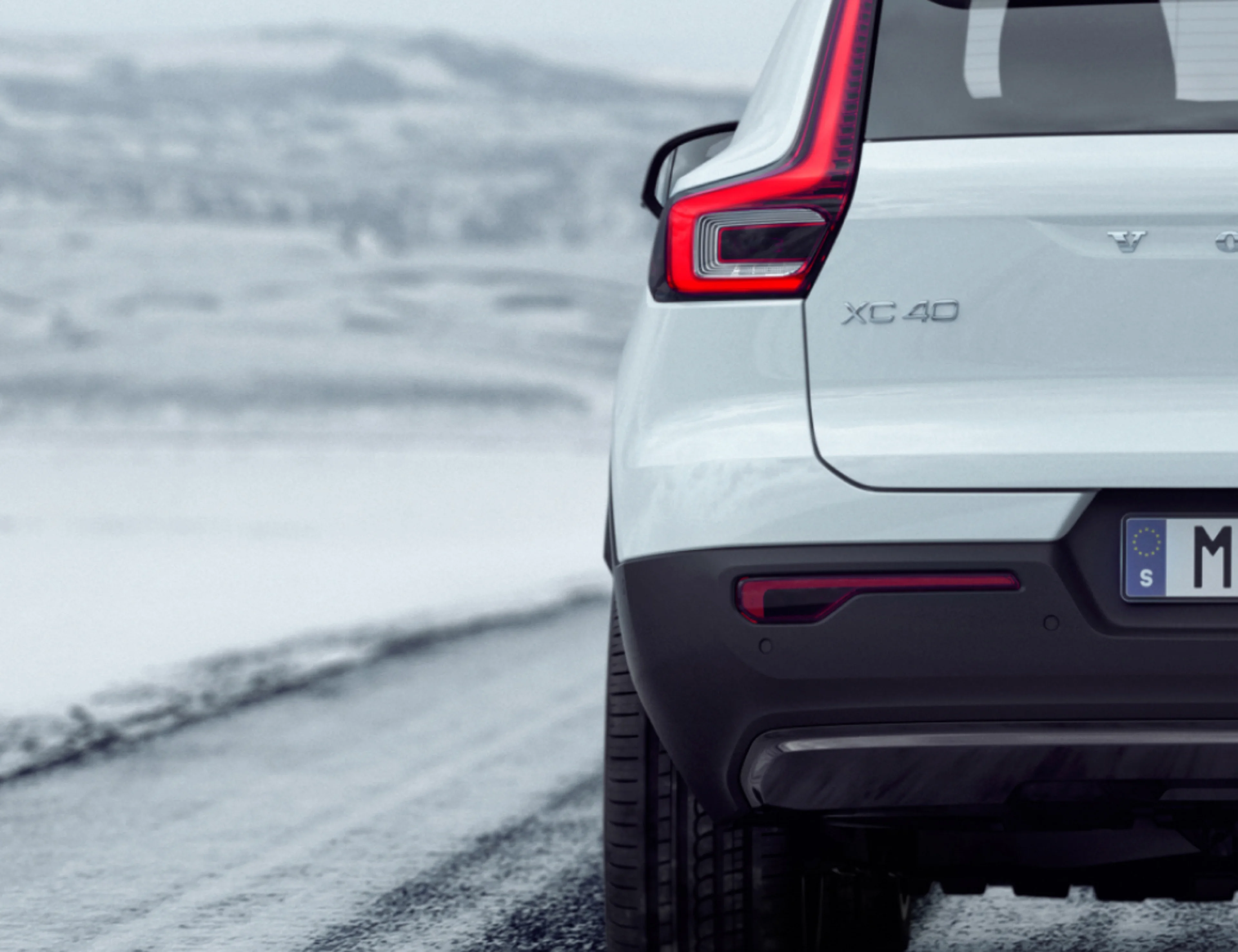
Full electrification
By 2030, we aim to have reduced CO₂ emissions per car by 65-75 per cent. When the market is ready, we will become fully electrified. So far, we've launched the EX40, EC40, EX90, EX30 and EM90 – pure electric, zero tailpipe emissions.
-30% materials emissions by 2030

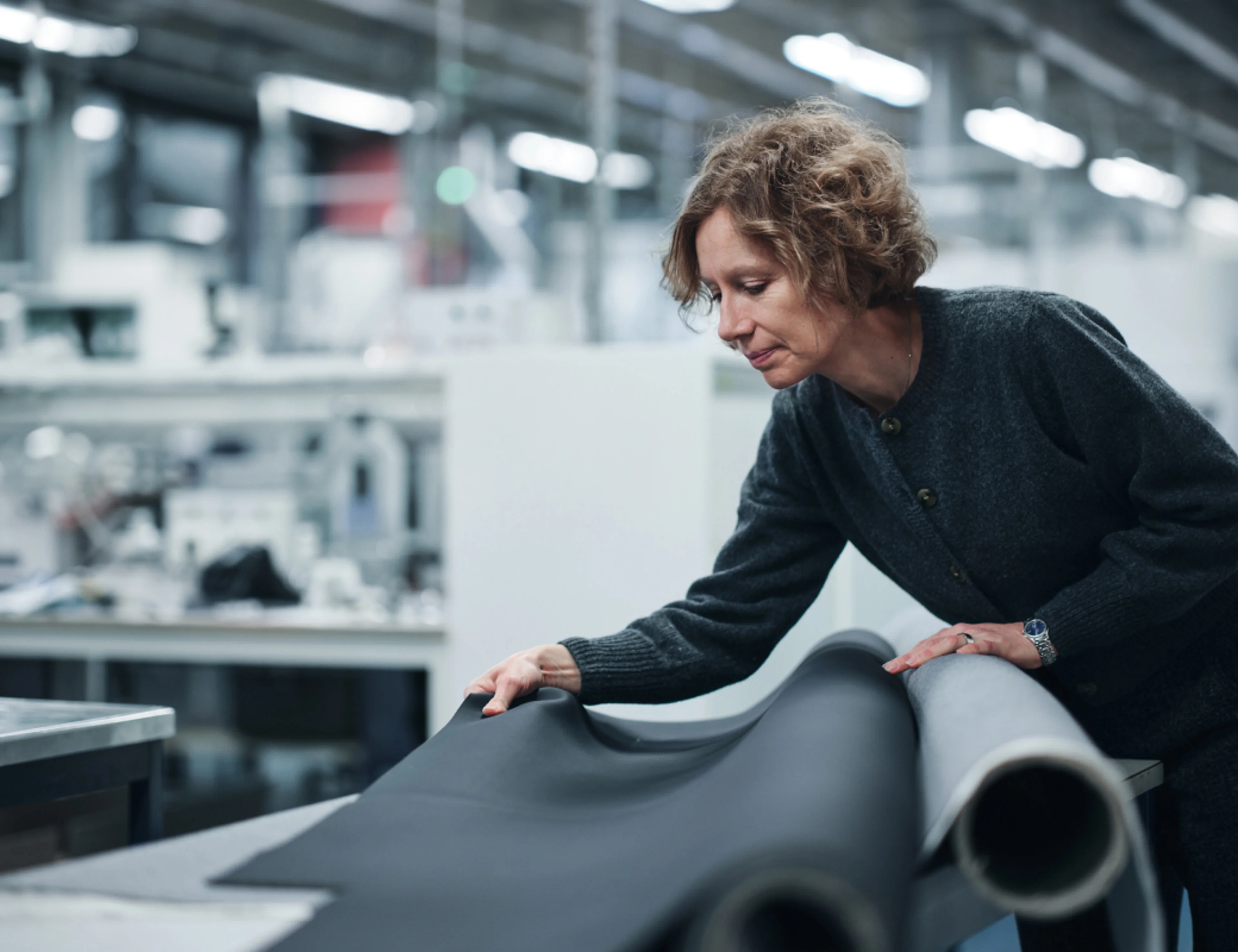
-30% materials emissions by 2030
We need our suppliers to reduce emissions too. Steel, battery and component production, raw material mining, and indirect materials such as computers and office furniture, all must be addressed. For fully electric cars, 75 per cent of the material emissions is from steel, aluminium and the battery. So we're working actively to design and develop our cars in a more sustainable way, while increasing the share of low-emission, near-zero emission and recycled materials. We're aiming to reduce emissions from materials by 25 per cent per car by 2025, then by 30 per cent per car by 2030 (2018 baseline).
-30% operational emissions by 2030

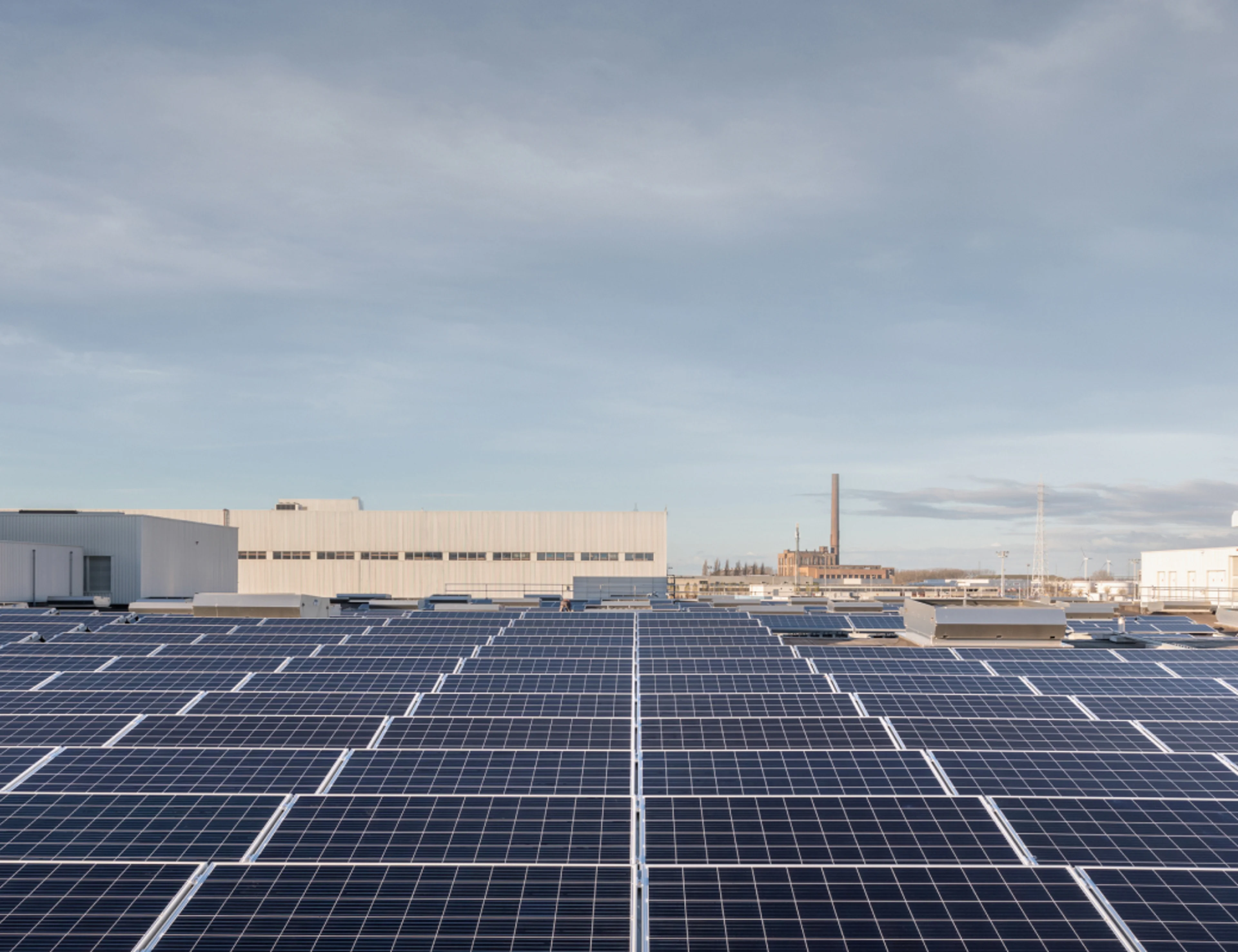
-30% operational emissions by 2030
Looking beyond the tailpipe, we must act on other emission sources – production facilities, company vehicles, logistics, business travel, employee commuting, waste, and the end-of-life of vehicles. So we're aiming to reduce operational emissions, average per car, by 25 per cent by 2025, then 30 per cent by 2030 (2018 baseline). To start with, our ambition is to have climate neutral energy in our own operations by 2025.

CO₂e per car –65-75, 2030
We're progressively reducing average per car emissions to achieve net zero by 2040. Our ambition is by 2030 to reduced CO₂ emissions per car by 65-75 per cent.

Full electrification
By 2030, we aim to have reduced CO₂ emissions per car by 65-75 per cent. When the market is ready, we will become fully electrified. So far, we've launched the EX40, EC40, EX90, EX30 and EM90 – pure electric, zero tailpipe emissions.

-30% materials emissions by 2030
We need our suppliers to reduce emissions too. Steel, battery and component production, raw material mining, and indirect materials such as computers and office furniture, all must be addressed. For fully electric cars, 75 per cent of the material emissions is from steel, aluminium and the battery. So we're working actively to design and develop our cars in a more sustainable way, while increasing the share of low-emission, near-zero emission and recycled materials. We're aiming to reduce emissions from materials by 25 per cent per car by 2025, then by 30 per cent per car by 2030 (2018 baseline).

-30% operational emissions by 2030
Looking beyond the tailpipe, we must act on other emission sources – production facilities, company vehicles, logistics, business travel, employee commuting, waste, and the end-of-life of vehicles. So we're aiming to reduce operational emissions, average per car, by 25 per cent by 2025, then 30 per cent by 2030 (2018 baseline). To start with, our ambition is to have climate neutral energy in our own operations by 2025.
Climate-neutral manufacturing
We aim to have climate-neutral manufacturing operations by 2025. Since 2008, all our European plants have been running on hydroelectric power.
2022
Slovakia
Plans announced for new climate neutral car plant in Kosice that opens in 2026.
Learn more2018
Belgium and USA
Solar energy is introduced to manufacturing operations in Ghent & Charleston.
Learn more
The global standard for reporting on emissions
We're committed to real results based on an accurate count of all the emissions we're directly or indirectly responsible for. That's why we adhere to the Greenhouse Gas Protocol (GHG) – an international standard of greenhouse gas accounting.
Electric cars – benefits and challenges
Electrification plays a significant part in our vision to become climate neutral by 2040 – but electric cars create new challenges too, for everyone.
The wins created by electric cars are diminished if the charging electricity is generated from fossil fuels. Charging with renewable electricity significantly reduces the lifetime emissions of each car.
Charging also impacts the uptake of electric cars – more charging infrastructure is needed so that more people can make the change.
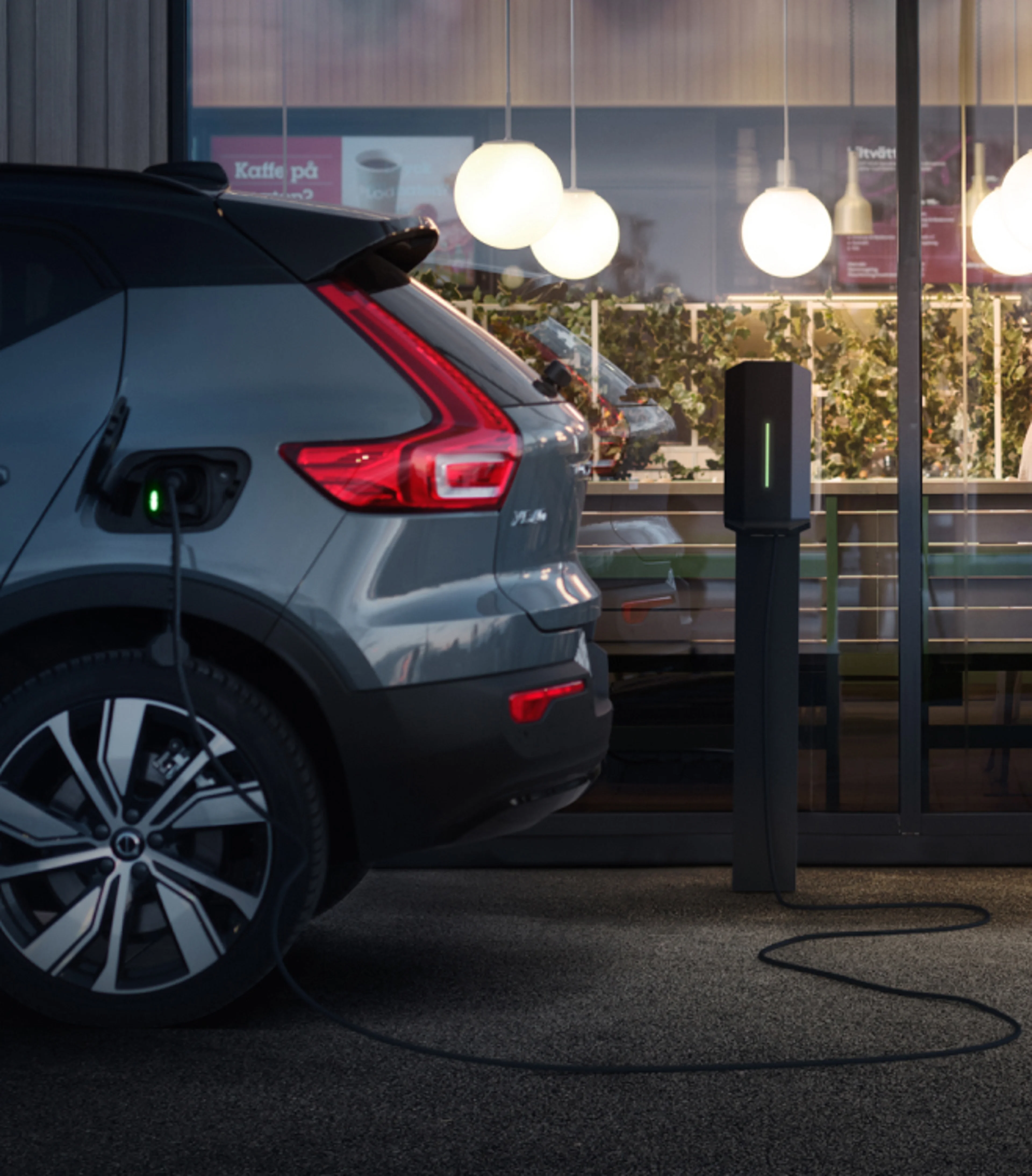
At this point in time, people also feel more secure with further range. Big range requires bigger batteries, which impacts on the total lifecycle emissions of the car, and the price.
It's a complex interplay and we believe electric cars will reach their full potential when we – as a global community – find new ways of providing customers with easy access to charging with renewable electricity.
Life-cycle analysis of our cars
We consider complete transparency about the climate impact of our battery electric vehicles (BEV) to be a corporate and social responsibility. That's why we've disclosed the carbon footprint for each of our new electric cars since 2019, quantified using life cycle assessment (LCA) methodology.
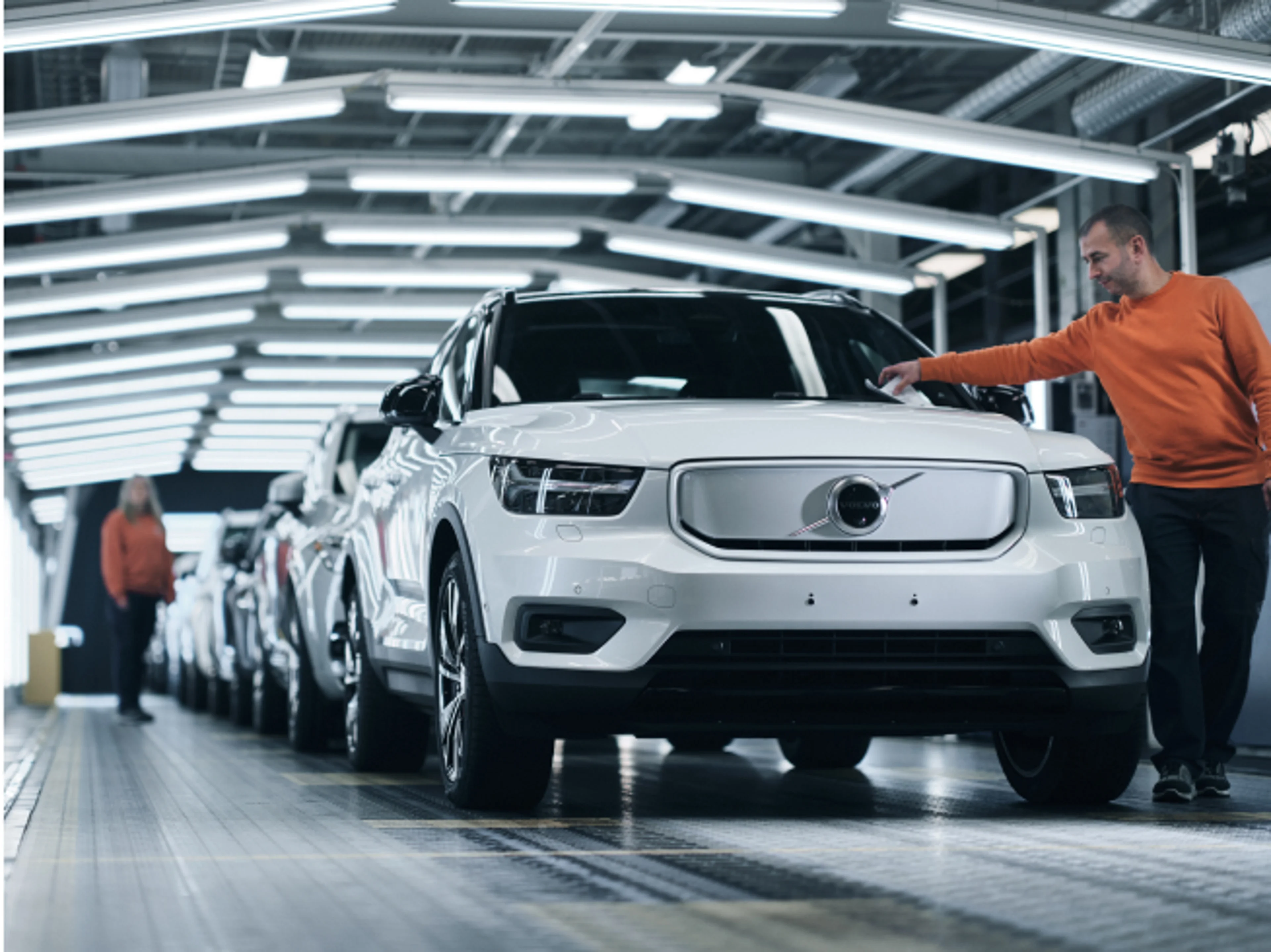
Data transparency and climate ambitions
LCAs enable us to pinpoint carbon intensive materials and processes within our own operations and supply chain – helping us achieve our climate ambitions, as well as true zero emission mobility.
Future
As fully electric Volvos are introduced in the future, we pledge to continue to be transparent about our CO₂ footprint on all new cars.
Our position
Our ambition to reach net zero greenhouse gas emissions by 2040 will create many challenges and we want to be transparent throughout this transformation. We want to act responsibly and we want anyone interested in what's happening here at Volvo Cars to be able to explore our progress and know what we stand for.
You're welcome to read the resources in our ESG Policies & Position section and learn more about what we're doing. And of course you're welcome to engage with us where you have expertise you think will help us on our journey.
